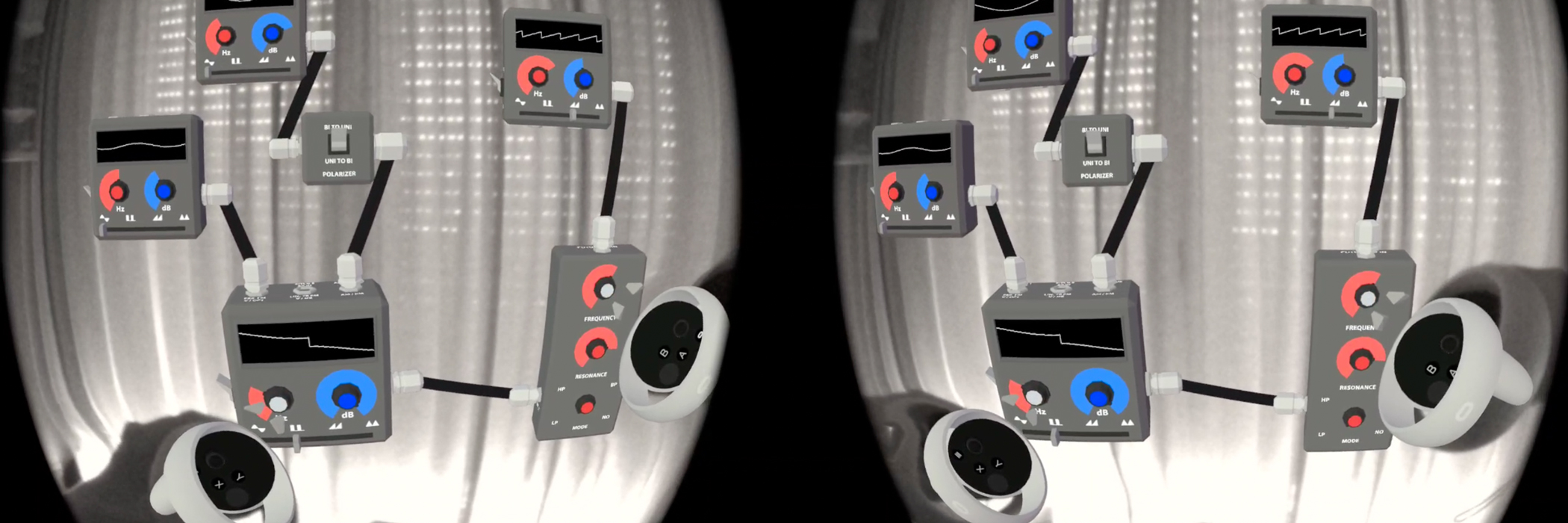Adaption von OpenSoundLab für autonomes Lernen (Lehrfonds FHNW)
OpenSoundLab (OSL) macht modulares Sounddesign dreidimensional in Form einer Mixed-Reality-Anwendung für Meta Quest. Mit OSL können einfache oder komplexe Klänge zu Hause, im Studio oder unterwegs gestaltet werden. OSL führt zudem in die Grundlagen der kreativen Klangarbeit durch Video-Tutorials ein, die direkt neben dem Projekt platziert werden können.
OSL ist ein Projekt von Ludwig Zeller, das auf einem Fork von Logan Olsons SoundStageVR basiert. Dank der Finanzierung des Lehrfonds der FHNW wurde es Studenten ermöglicht, Ludwig Zellers Software für das Selbststudium in den Grundlagen des Sounddesigns und der Klangkunst zu nutzen.
OSL erweitert die Originalversion, so dass sie für gestalterisch-künstlerische Projekte im Kontext der experimentellen Klangforschung und Musik geeignet ist. OSL bietet die Körperlichkeit von räumlichen Arbeitsumgebungen und Experimentalsystemen, ohne jedoch in physisch-materiellen Referenzen verfangen zu sein. Das Projekt fragt somit nach den spezifischen Grenzen und Stärken der hybriden Welten, die durch Mixed Reality möglich werden.
Das Tool und sein Quellcode können über GitHub über www.opensoundlab.org bezogen werden. Ein Trailer und Video-Tutorials sind auf YouTube verfügbar. Ein Konferenzbeitrag wurde im Tagungsbericht von AudioMostly ’22 veröffentlicht, wo das Projekt in Form einer Demo vorgestellt wurde.
